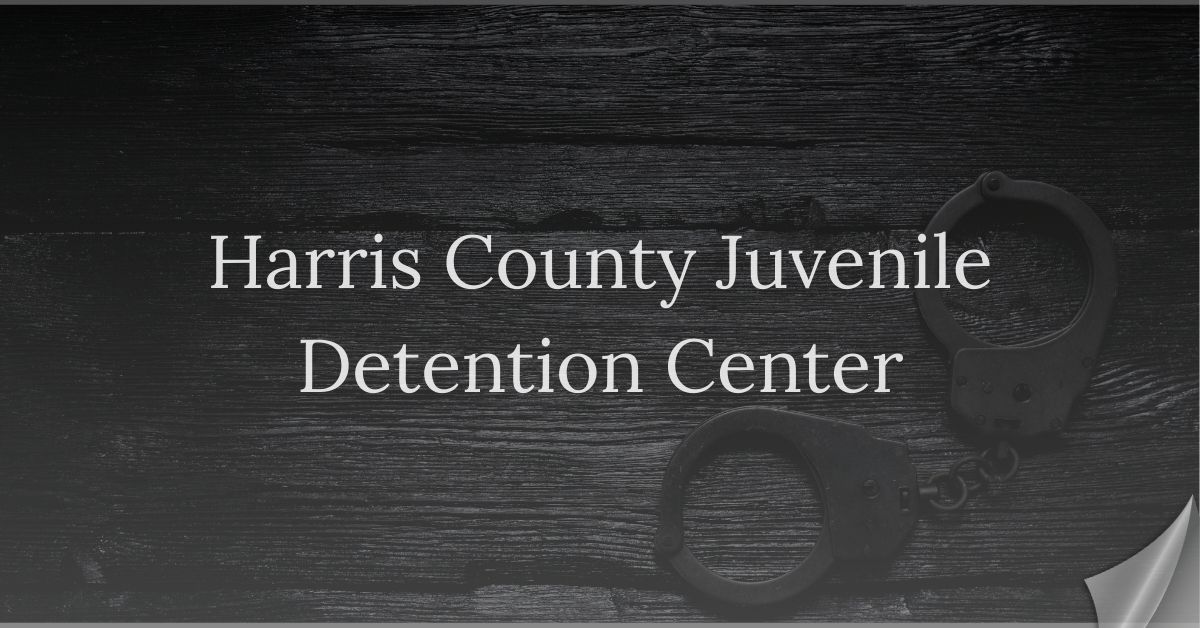The Harris County Juvenile Detention Center plays a vital role in providing secure care, rehabilitation, and support for youth involved in the juvenile justice system in Harris County, Texas. Understanding how the center operates, what services it offers, and how it affects the lives of young people and families is essential for residents, legal guardians, and professionals alike.
In this guide, you’ll find comprehensive information about the center’s purpose, services, visitation rules, and how it supports rehabilitation — not just detention.
What Is the Harris County Juvenile Detention Center?
The Harris County Juvenile Detention Center is a secure, state-regulated facility designed to house minors, typically aged 10–17, who have been arrested for alleged offenses and are awaiting court proceedings, placement, or other interventions. The facility operates under the Harris County Juvenile Probation Department (HCJPD) and focuses on both security and rehabilitation.
Unlike adult jails, juvenile detention centers emphasize education, mental health services, family involvement, and skill development to prevent reoffending and encourage positive life changes. For juvenile inmate information, visit our Harris County Jail Inmate Lookup.
Facility Location and Contact Information
Address:
Harris County Juvenile Detention Center
1200 Congress Ave, Houston, TX 77002Phone:
Main Line: (713) 222-4100Operating Hours:
24 hours, 7 days a week for detention purposes.
Office inquiries typically handled during business hours (Monday–Friday).
Who Is Held at the Harris County Juvenile Detention Center?
Youth housed at the center include:
Minors awaiting court hearings
Youth awaiting transfer to residential treatment centers or juvenile facilities
Juveniles detained for probation violations
Youth who are considered a risk to public safety or who require temporary secure custody
Each juvenile’s length of stay varies depending on court proceedings, legal outcomes, and rehabilitative needs.
Programs and Services Offered
The Harris County Juvenile Detention Center prioritizes rehabilitation and personal development. Programs available to detained youth include:
Educational Services
On-site accredited school programs provided by the Harris County Department of Education (HCDE)
Core curriculum: Math, Science, English, History
Special education services for qualifying students
Behavioral Health and Counseling
Mental health screenings upon intake
Individual and group therapy sessions
Substance abuse counseling programs
Trauma-informed care models
Medical and Wellness Services
24/7 medical staff
Routine health screenings
Access to dental and vision care
Mental health crisis interventions
Life Skills and Enrichment Programs
Anger management classes
Conflict resolution workshops
Job readiness and vocational training programs
Recreational activities (sports, arts, and fitness programs)
Visitation Information
Family support is critical in the juvenile rehabilitation process. The Harris County Juvenile Detention Center allows for structured visitation.
Visitation Rules:
Only parents, guardians, or approved visitors may visit.
All visitors must be listed on the youth’s approved visitor list.
A government-issued photo ID is required for entry.
Visits are subject to scheduling; typically weekends and holidays.
All visitors are subject to security screening.
Note: Some COVID-19 protocols or other health regulations may affect in-person visitation — always call ahead.
How to Contact a Juvenile Detainee
Phone Calls: Detainees may make scheduled outgoing calls to approved family members or attorneys.
Mail:
Youth can send and receive letters. Mail should be addressed properly and will be inspected for safety reasons.
Mailing Address:
(Youth’s Full Name)
Harris County Juvenile Detention Center
1200 Congress Ave
Houston, TX 77002
How the Center Supports Rehabilitation
The focus at the Harris County Juvenile Detention Center is long-term success, not just short-term confinement. The center collaborates with families, schools, social services, and courts to:
Develop individualized treatment and education plans
Promote positive behavior changes
Support mental health stability
Encourage family reunification when possible
Youth may also be referred to external programs, such as residential treatment centers or vocational schools, depending on court orders and personal needs.
FAQs
FAQs are an essential resource for individuals seeking quick answers to common inquiries. At the Harris County Juvenile Detention Center, we understand that navigating the juvenile justice system can be complex and overwhelming for both families and the community. Our FAQ section is designed to provide clear, concise information to address your most pressing concerns. Whether you have questions about the detention process, visitation rules, or the services offered to juveniles, our FAQs aim to offer straightforward answers to help you better understand the procedures, services, and resources available. If you don’t find the information you’re looking for, feel free to reach out to us directly for further assistance.
How long can a juvenile stay at the Harris County Juvenile Detention Center?
It depends on the youth’s charges, risk assessment, and court decisions. Some stay for a few days; others remain for several months.
Can juveniles continue their education while detained?
Yes, certified teachers provide instruction, and credits earned transfer back to the youth’s home school district.
Is bail or bond available for juveniles?
Not typically in the same way as adults. Release decisions are made by juvenile court judges, based on risk assessments and case factors.
What happens after a youth is released?
Depending on the court’s ruling, they may return home under supervision, be placed in a treatment facility, or undergo probation.
The Harris County Juvenile Detention Center is more than just a detention facility — it’s a critical part of the community’s efforts to rehabilitate and redirect young lives toward positive outcomes. With its strong emphasis on education, mental health, life skills, and family engagement, the center strives to turn challenges into opportunities for growth.
If you have a family member at the center or simply want to learn more about the facility, staying informed and engaged can make all the difference.
